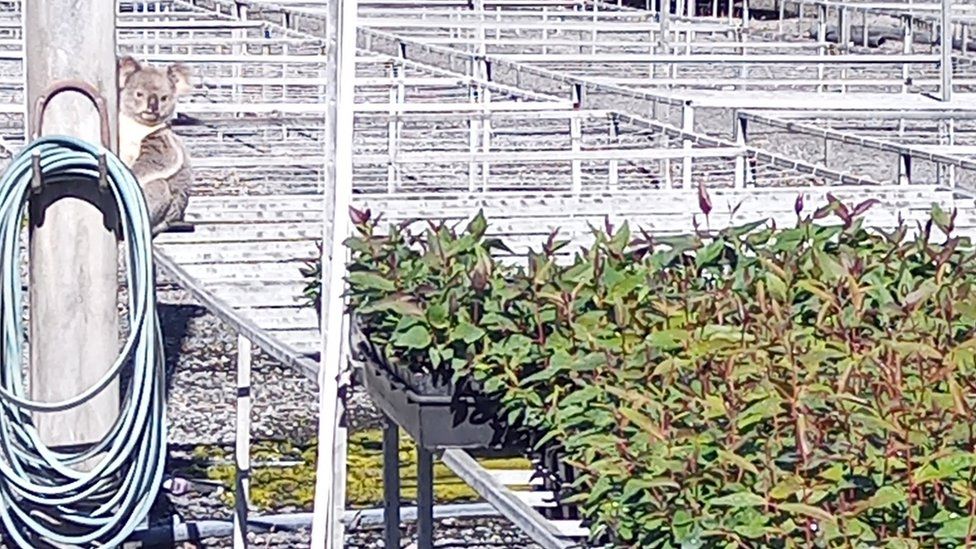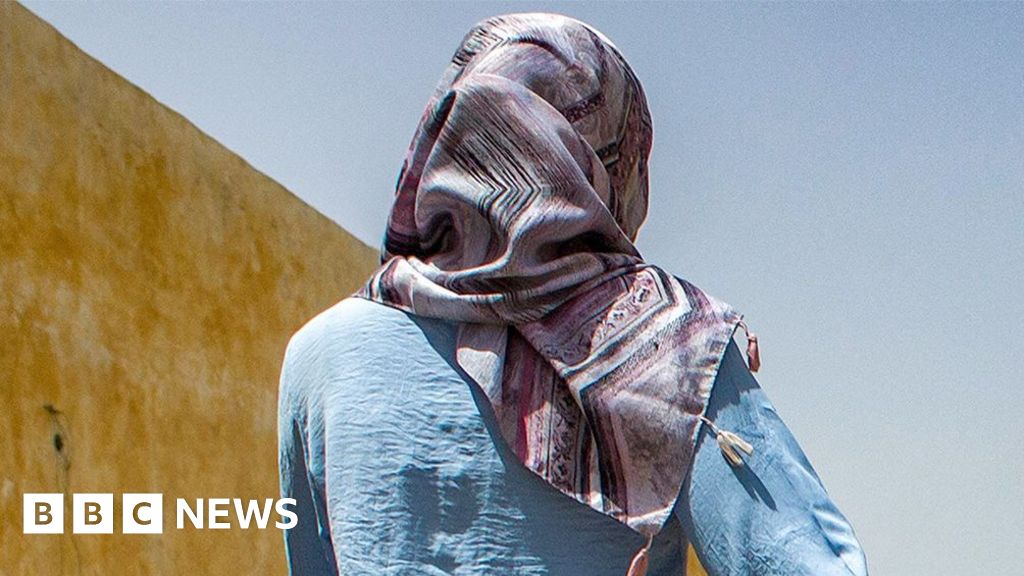ARTICLE AD BOX
 Image source, Humphrey Herington
Image source, Humphrey Herington
Claude the koala was caught red-handed
By Tiffanie Turnbull
BBC News, Sydney
For weeks on end, Australian nursery owner Humphrey Herington has been racking his brain to identify the elusive thief eating his seedlings.
At first he thought it was escaped goats. Then perhaps a pesky possum.
The last thing he expected was to walk into work one day and find a "cheeky" koala, dazed and too stuffed to move, surrounded by stripped eucalypt plants.
"He looked like he was full. He looked very pleased with himself," Mr Herington told the BBC.
Staff are now building a koala-proof fence around their seedling tables to thwart the marsupial - dubbed Claude - whose snacking on several thousands of plants has cost the nursery A$6,000 (£3,000; $3,800).
Ironically, the plants Claude devoured were being grown to boost koala habitats in the region - the species is endangered.
The team at Eastern Forest Nursery, near Lismore in northern New South Wales, had first noticed plants were being chewed a few months ago.
"There weren't really any signs - there was no tracks or anything - to indicate what it could have been," Mr Herington said.
They set a possum trap - to no avail - and even examined animal droppings for clues. But the culprit was only caught when they became a little too greedy.
"We came out to work one morning and there he was, sitting there on a pole."
"And there was lots of plants missing that morning... I guess that day he must have had a really big feed and was too tired to go back to his tree."
With Claude unmasked as the leaf thief, Mr Herington gently wrapped him in a towel and moved him to some trees about 300m (984 feet) from the nursery.
"But a couple of days later, he came back and continued with his nightly visits," he said.
But Mr Herington isn't mad, he's rather amused. Koalas aren't exactly known for their agility or ingenuity.
"I just couldn't believe that it was a koala," he said. "I was shocked but I was also... a little bit impressed."
Tinged with that though, is concern.
"I've been here for 20 odd years and this hasn't really happened before," Mr Herington said. "Is it that there is a shortage of food?"
In 2022, koalas were listed as endangered along most of Australia's east coast, after a dramatic decline in numbers.
The once-thriving marsupial has been ravaged by land clearing, bushfires, drought, disease and other threats.
In 2021 a NSW inquiry found koalas would be extinct there by 2050 unless there was urgent action. There may be as few as 50,000 of the animals left in the wild, some conservation groups say.

 1 year ago
20
1 year ago
20








 English (US)
English (US)